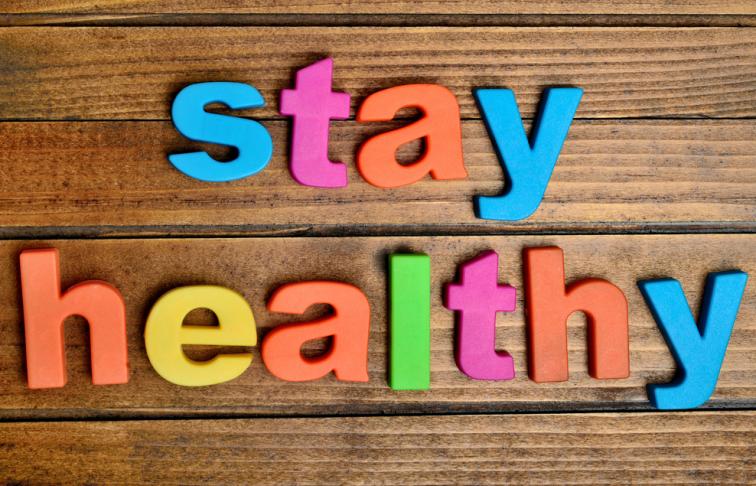Planning and preparation prevents poor performance, so you need to start with SMART goals: Specific, Measurable, Achievable, Relevant and Timely:
- Specific: This includes deciding what you will do, how long you will do it, and when you will do it. Rather than a general goal of ‘exercise more’ try a specific goal like ‘take a 30-minute brisk walk every evening in the park’. As you get fitter you will naturally walk further while still sticking to your time goal
- Measurable. If you can measure a goal, you can objectively determine your progress. For the brisk walk example above, you can measure the time. But what other factors do you want to use? Inch loss? Weight loss? Fitting a specific set of clothes? Determine what feels right for you. Some free apps are available to capture weight loss and other fitness-related measurements (but a pen and paper will do just as well)
- Achievable. If you set yourself unattainable goals you’re more likely to give up quickly. Don’t think of achievable goals as being unambitious; the trick is to achieve one goal and set the next; start small, and you can build up to something spectacular. You know your own body and there may be things you just can’t do, so work hard within your own abilities
- Relevant. Keep yourself motivated by focusing on why you want to do this, the specific positive change this will make in your life and in the way you feel. You could be inspired by the longer-term health benefits, the way you look, or being able to run around with your kids. You need to find your own compelling reason to stick to your plan
- Timely. Have a date to work towards and put it in a calendar. This will make the goal ‘real’ and every day you’ll be a step closer to it. When you get there, give yourself a reward….and set another goal. And if you don’t achieve it, despite your best efforts? Learn from your mistakes (Goal too ambitious? Didn’t exercise as much as you could?) and forgive yourself. If you’re too hard on yourself, it will be hard to stay motivated.
Now that you know what you want to achieve, you need to decide how to achieve it. The best way to stick to an exercise plan is to enjoy it. If something really bores you, try something else as there are so many ways to exercise, there will be something that’s just right for you.
- Don’t be too hard on yourself. Progress is sometimes slow – but it’s still progress. Remember that you set your goals because you want to bring about positive change in your life, and you can do it. The key is to find out what works for you – and make sure you’re having fun
- Eat well. Weight gain happens when we eat more calories than we use. If your goal is to lose weight, the key is to eat less and get more active. However, some diet programmes that promise fast weight loss are often not sustainable in the long run. To nourish your body and kick start a healthy weight loss plan, follow the NHS advice at: https://www.nhs.uk/Livewell/loseweight/Pages/how-to-diet.aspx
- Move more. Incorporating more movement into your everyday life will help you to lose weight and become healthier. In fact, research shows that regular, moderate activity such as walking daily can burn more energy than weekly visits to the gym! Look for ways you can include movement in your life: Walk whenever you can. Use the stairs. Cycle to work
- Exercise with a friend. A friend can encourage you to exercise when you don’t really feel like it, motivate you when progress is slow, and share your successes when you reach your goals. And you can do the same for them
- Running: this can seem daunting, especially if you feel unfit. However, the NHS has a special ‘Couch to 5K’ programme for absolute beginners, that will see you running the distance in just 9 weeks! There are many physical benefits to running – weight loss and toned muscles, and it can also boost your confidence and self-belief. Download the app or podcast today at: https://www.nhs.uk/Livewell/c25k/Pages/get-running-with-couch-to-5k.aspx
- Home exercise: you can get good exercise at home without any special equipment at all. Walking or running up and down stairs, stretching, doing push-ups on the floor or against the wall, sit ups or just dancing around the kitchen to music will all help with your fitness.
- Strength and Flex workouts podcasts. The NHS has created a set of 5 podcasts where a fitness coach talks you through exercises to help improve your strength and flexibility. Requiring no special equipment, the exercises can be done in or outdoors. Download them now at: https://www.nhs.uk/LiveWell/strength-and-flexibility/Pages/strength-and…
These tips are free, they don’t include paid for exercise, such as gym membership. If this is something you’re interested in: you may be able to find good deals at the start of the year, when gyms are actively recruiting new members. Make sure you speak to one of the staff about your personal goals and together you can tailor a programme and review it regularly. You may also want to look in your local paper for fitness classes nearby. If there’s a class you’re interested in right on your doorstep, it’s one more reason to stick with it
*According to a survey of over 2,000 UK adults, commissioned by GoCompare

